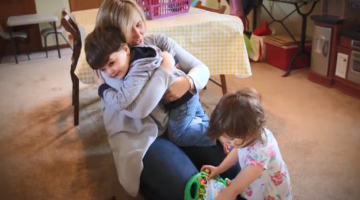
Where serious illnesses go, mental health issues often follow. Yet because medical care and mental health care are traditionally delivered separately, many people living with chronic or life-threatening diseases do not get adequate treatment for related emotional struggles.
Fremonta Meyer, MD, is a psychiatrist at the Brigham who specializes in helping cancer patients navigate anxiety, depression, pain, and other issues. In addition to traditional therapy, Meyer prescribes psychiatric medications that won’t interfere with chemotherapy, immunotherapy, or other treatments.
“No two patients are alike, but many start by focusing their energy on dealing with the physical side of their cancer,” says Meyer. “The emotional piece usually hits later.”
Meyer and Elizabeth Farrell, a social worker at the Dana-Farber Cancer Institute, lead two support groups for women with metastatic breast cancer. For 90 minutes each month, the women in each group commiserate about burdens of cancer, including issues with medications and dealing with weight changes, nausea, and fatigue that won’t quit. They ruminate on how unnatural it feels to learn how many months or years they have left to live, followed by the thrill or dread that comes with surviving that time estimate.
“These issues aren’t limited to cancer,” Meyer says. “Support groups like these have the potential to be transformative for Alzheimer’s, autoimmune diseases, MS, HIV, substance use disorders, and all the other tough diseases people live with.”
Every woman in the group has become an expert, and they generously and confidently share their hard-won wisdom. For long stretches of time, the conversation flows naturally between them with little prompting from Meyer and Farrell.
“Group therapy probably doesn’t improve survival rates,” says Meyer. “But evidence shows it significantly boosts patients’ quality of life, which for many patients is as or more important than length of life.”










